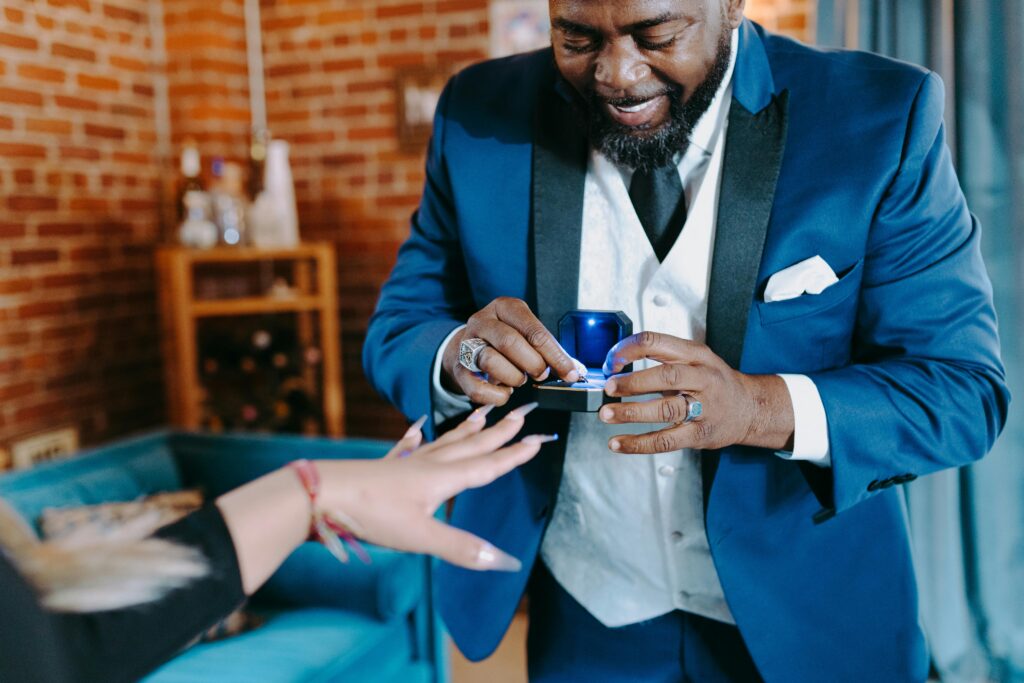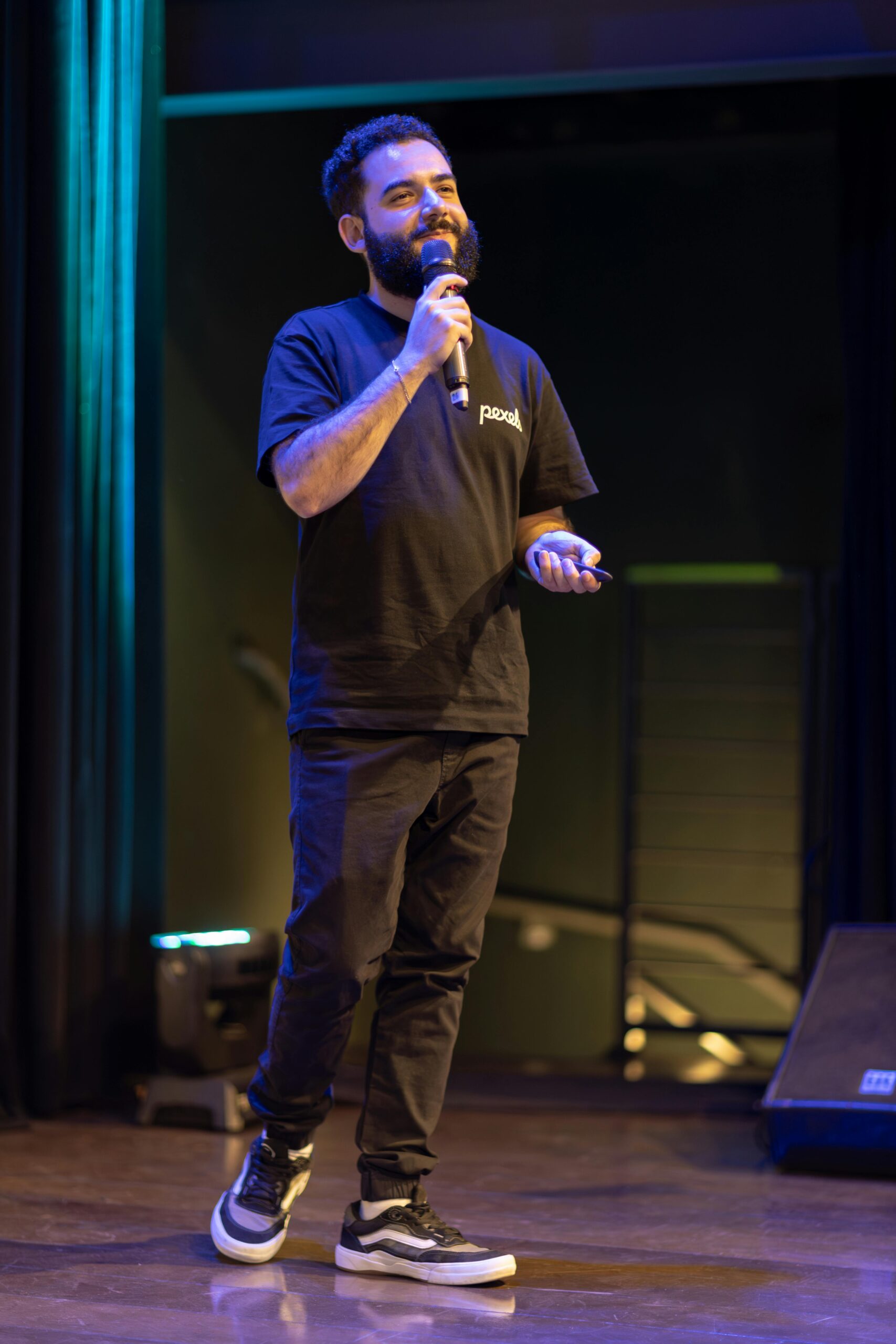Let’s be honest: most marriage advice is either painfully obvious or completely useless. “Communicate more!” Thanks, Captain Obvious. “Never go to bed angry!” Cool, so I should just stay up until 3 AM arguing instead?
Here’s what actually helps: wisdom from people who’ve studied thousands of relationships, conducted actual research, and have something genuinely insightful to say. That’s where TED Talks come in.
I’ve watched probably 50+ relationship TED Talks over the years, some for professional development, some because YouTube’s algorithm decided I needed them at 2 AM. And honestly? Most are forgettable.
Total game-changers. The kind that makes you pause the video, look at your partner, and say “okay, we need to talk about this.”
These aren’t your typical surface-level relationship tips. These speakers, therapists, researchers, psychologists, and relationship experts, share insights backed by science, years of clinical work, or studying thousands of couples.
They challenge assumptions, expose patterns, and offer frameworks that actually work in real marriages, not just in theory.
Whether your marriage is thriving and you want to keep it that way, or you’re struggling and need fresh perspective, these talks deliver. Grab your coffee, and let’s explore the TED Talks that genuinely deserve your 15-20 minutes.
15 Best TED Talks About Marriage
These talks aren’t ranked, they’re organized by theme so you can jump to what resonates most with your current relationship needs.
1. Esther Perel: The Secret to Desire in a Long-Term Relationship
If you only watch one talk from this entire list, make it this one. Esther Perel is basically the relationship world’s rockstar, and this talk explains why. Perel tackles the question every long-term couple secretly wonders.
Why does passion fade, and can you get it back? Her answer is brilliant and counterintuitive.
She argues that passion requires mystery, space, and separateness, but marriage is built on closeness, familiarity, and security. These are fundamentally opposing forces. You need to maintain your individuality within your marriage.
Your partner fell for a whole, interesting person, not someone whose entire identity revolves around being their spouse. When you have your own interests, experiences, and inner world, you become more desirable.
I recommend this talk to every couple I work with who complains about their sex life. Usually, the problem isn’t technique or frequency, it’s that they’ve merged so completely that desire has nowhere to live.
Watch this if: Your relationship feels more like comfortable companionship than passionate romance, or you’re wondering where the spark went.
Key insight: “Fire needs air. Desire needs space.”
2. Jenna McCarthy: What You Don’t Know About Marriage
This talk is proof that relationship advice doesn’t have to be serious to be valuable. Jenna McCarthy delivers research-backed marriage insights wrapped in humor that’ll make you laugh out loud.
McCarthy shares surprising data about what actually predicts marital success. Spoiler alert: it’s not the stuff you’d expect. Couples who watched romantic movies together and discussed them had better relationships.
Wives who were more satisfied with their marriages had husbands who gained weight (yes, really). Small gestures matter way more than grand ones.
What I love about this talk is it takes the pressure off. Marriage doesn’t require perfection or constant romance. It requires paying attention to the small stuff and occasionally laughing at how ridiculous you both are.
Watch this if: You need a lighthearted reminder that marriage is both important and absurd, often simultaneously.
Key insight: The little, seemingly insignificant habits matter way more than big, dramatic gestures.
3. Julie Gottman: The Science of a Successful Marriage

The Gottman method is basically the gold standard in couples therapy, and Julie Gottman breaks down decades of research into accessible, practical advice.
If you’ve ever heard about the “Four Horsemen of the Apocalypse” in relationships (criticism, contempt, defensiveness, and stonewalling), that’s Gottman research.
This talk explains how to recognize destructive patterns and replace them with behaviors that actually strengthen your bond.
What makes the Gottman work so powerful is it’s based on observing thousands of real couples, not just theory. They can predict with scary accuracy which couples will divorce based on how they interact. But here’s the good news: you can learn the skills that successful couples use.
FYI, I use Gottman principles constantly in my practice. They work because they’re evidence-based and straightforward, no mystical nonsense, just practical communication strategies.
Watch this if: You want science-backed strategies for conflict resolution and emotional connection.
Key insight: The strongest marriages are built on friendship, turning toward each other’s bids for connection, and managing conflict productively.
4. David Brooks: The Lies Our Culture Tells Us About What Matters, and a Better Way to Live
This isn’t exclusively about marriage, but Brooks’ message is crucial for any couple navigating modern life’s pressure to prioritize achievement over connection.
Brooks argues that our culture pushes us toward “resume virtues” (career success, wealth, status) while neglecting “eulogy virtues” (the qualities people remember about you, like being a loving partner).
He makes a compelling case that meaningful relationships are what actually create a life well-lived.
I see so many couples who’ve sacrificed their marriage on the altar of career success, only to realize at 45 that they’re strangers who happen to share a mortgage. This talk challenges those priorities before it’s too late.
Watch this if: You’re struggling to balance ambition with relationship investment, or your marriage keeps getting deprioritized.
Key insight: Success without meaningful relationships is just impressive-looking emptiness.
5. Brené Brown: The Power of Vulnerability

This is probably the most-watched TED Talk of all time, and for good reason. Brené Brown’s research on vulnerability, shame, and connection is relationship-changing.
Brown explains that vulnerability isn’t weakness, it’s the birthplace of intimacy, trust, and authentic connection. In marriage, this means being willing to show your partner the parts of yourself you’re afraid might not be lovable. Your fears, your shame, your insecurities.
Most people think they need to present a polished version of themselves even to their spouse. That creates distance. Real intimacy happens when you let your partner see you fully and they choose to love you anyway.
Every couple I work with who struggles with emotional intimacy has a vulnerability problem. One or both partners are protecting themselves by hiding, and you can’t connect deeply with someone who won’t let you see them.
Watch this if: Your marriage feels emotionally distant, or you struggle with being truly open with your partner.
Key insight: “Vulnerability is not winning or losing; it’s having the courage to show up when you can’t control the outcome.”
6. Helen Fisher: The Brain in Love
Want to understand why you feel what you feel? Helen Fisher breaks down the neuroscience of romantic love in a way that’s both fascinating and practical.
Fisher explains the three brain systems involved in love: lust (driven by sex hormones), romantic love (driven by dopamine), and attachment (driven by oxytocin). Understanding these systems helps couples recognize that changes in feelings don’t necessarily mean the love is dying, just that it’s evolving.
The dopamine-fueled obsession of early love naturally shifts to the oxytocin-based comfort of long-term attachment. Neither is better or worse; they’re just different. Knowing this prevents couples from panicking when the honeymoon phase ends.
Watch this if: You want to understand the biological underpinnings of attraction, desire, and long-term bonding.
Key insight: Love isn’t just an emotion, it’s a complex interplay of brain chemistry that changes over time in predictable ways.
7. Emily Nagoski: The Truth About Unwanted Arousal

This talk focuses on sexual desire, which is absolutely relevant to marriage. Nagoski explains why sexual desire works differently than most people think, particularly in long-term relationships.
She introduces the concepts of spontaneous desire (feeling turned on out of nowhere) versus responsive desire (becoming aroused in response to context and stimulation).
Most people assume spontaneous desire is “normal,” but responsive desire is actually more common, especially for women.
Understanding this prevents so many unnecessary fights and feelings of inadequacy. If your partner doesn’t initiate sex as often as you’d like, it doesn’t mean they’re not attracted to you. Their desire might just work differently.
IMO, every couple with mismatched libidos needs to watch this talk together. It removes blame and creates understanding around a topic that destroys too many marriages.
Watch this if: Sexual desire is a source of conflict or confusion in your marriage.
Key insight: Context matters more than spontaneous desire. Creating the right conditions for arousal is key.
8. Meg Jay: Why 30 Is Not the New 20
Meg Jay’s message is primarily for twentysomethings, but her insights about intentionality apply to marriage at any age.
Jay argues against coasting through your twenties assuming you have all the time in the world to figure things out. She emphasizes making deliberate choices about relationships rather than drifting into them by default.
For married couples, the takeaway is about continuing to choose each other intentionally rather than just going through the motions. Don’t let your marriage run on autopilot.
Watch this if: You’re engaged or newly married and want to build a strong foundation, or your marriage has gotten too comfortable.
Key insight: Intentional choices create better outcomes than passive drifting, especially in relationships.
9. Gary Lewandowski: Breakups Don’t Have to Leave You Broken

Why include a talk about breakups in a marriage article? Because Lewandowski’s insights about growth, resilience, and self-expansion are incredibly relevant to married couples working through rough patches.
He explains that relationships should help you grow into a better version of yourself. When they stop doing that, dissatisfaction sets in. The solution isn’t necessarily ending the relationship, it’s reigniting mutual growth.
This talk helps couples understand that feeling stuck or stagnant in marriage is common but fixable. You need to keep growing together, trying new things, and expanding your shared experiences.
Watch this if: Your marriage feels stuck, or you’re questioning whether to stay or leave.
Key insight: Relationships thrive when both partners continue growing and evolving together.
10. Eli Finkel: The All-or-Nothing Marriage
This talk perfectly captures the modern marriage dilemma. Finkel explains how we’ve shifted from expecting marriage to provide basic needs (safety, survival) to expecting it to fulfill every emotional, psychological, and self-actualization need.
The problem? We’re asking marriage to do more than ever while investing less time and energy into it. The result is either exceptional marriages (when couples invest heavily) or disappointing ones (when they don’t).
Finkel’s solution isn’t lowering expectations, it’s being realistic about the investment required. If you want a marriage that fulfills you deeply, you need to prioritize it accordingly.
This resonates with every couple I work with who wonders why their marriage isn’t more satisfying. Usually, they’re expecting a lot while giving very little focused attention.
Watch this if: You expect a lot from your marriage but aren’t sure you’re investing enough to get it.
Key insight: High expectations require high investment. You can’t phone it in and expect extraordinary results.
11. Dan Savage: The Price of Admission

Dan Savage is refreshingly blunt, and his concept of the “price of admission” is something every married person needs to hear.
His point? No partner is perfect. Everyone comes with quirks, flaws, and annoying habits. The question isn’t whether your partner has imperfections, it’s whether you’re willing to accept their specific imperfections as the price of being with them.
This talk is an antidote to the unrealistic expectation that your partner should meet all your needs perfectly. They won’t. Neither will you. The sooner you accept that, the happier you’ll be.
Watch this if: You find yourself constantly frustrated by your partner’s flaws, or you’re struggling with acceptance.
Key insight: Every relationship requires accepting imperfections. The question is whether the specific imperfections are tolerable.
12. Mandy Len Catron: Falling in Love Is the Easy Part
Catron became famous for an article about trying the “36 questions that lead to love” experiment. In this talk, she explores why staying in love is harder than falling in love.
Falling in love happens almost automatically when conditions are right. Staying in love requires conscious effort, choice, and commitment when feelings naturally ebb and flow.
This talk is perfect for couples past the honeymoon phase who are realizing that real love is work. Not miserable, soul-crushing work, but intentional, ongoing effort to maintain connection.
Watch this if: You’re past the easy early stages and wondering how to sustain love long-term.
Key insight: Love is both a feeling and a choice, and the choice part matters more in the long run.
13. Susan David: The Gift and Power of Emotional Courage
Emotional courage is the ability to face difficult emotions instead of avoiding them. In marriage, this is absolutely critical.
David explains that emotional agility, the ability to navigate emotions effectively, is what allows couples to work through conflict instead of avoiding it or exploding over it. You need to be able to sit with discomfort, acknowledge hard truths, and have difficult conversations.
Most couples I work with avoid emotional courage. They’d rather pretend everything’s fine than risk uncomfortable conversations. But avoidance doesn’t prevent problems, it just delays them until they explode.
Watch this if: You or your partner tend to avoid difficult conversations or emotions.
Key insight: Emotional discomfort is part of growth. Avoiding it prevents both personal and relational development.
14. Terri Orbuch: 5 Simple Steps to Take Your Marriage from Good to Great

Orbuch offers practical, research-backed advice for couples who want to strengthen an already decent relationship.
Her five steps are actionable and specific, not vague platitudes like “communicate better.” She focuses on everyday behaviors that compound over time to create significant relationship satisfaction.
What I appreciate about this talk is it acknowledges that most marriages aren’t in crisis. Many couples just want to move from “fine” to “fantastic,” and Orbuch provides the roadmap.
Watch this if: Your marriage is okay but you want it to be exceptional.
Key insight: Small, consistent actions create big relationship improvements over time.
15. Harville Hendrix and Helen LaKelly Hunt: Making Marriage Simple
Imago therapy founders Hendrix and Hunt simplify marriage down to essential principles that couples can actually implement.
They explain how childhood wounds show up in marriage and how couples unconsciously trigger each other’s pain. Understanding this prevents taking conflicts personally and allows couples to support each other’s healing.
Their approach is both psychological and practical. They offer specific dialogue techniques that help couples move from conflict to connection.
Watch this if: You feel like you’re stuck in repetitive conflicts and want to understand the deeper dynamics.
Key insight: Most marital conflicts are rooted in unhealed childhood wounds. Awareness and intentional dialogue can transform these patterns 🙂
Final Thoughts
Marriage doesn’t come with an instruction manual, but these TED Talks are pretty close. They offer evidence-based insights, practical strategies, and fresh perspectives that actually apply to real relationships.
The couples who thrive are the ones who keep learning, stay curious about their relationship, and actively work to understand themselves and their partner better. These talks support that ongoing education.
My recommendation: Pick 2-3 talks that resonate with your current relationship challenges. Watch them with your partner if possible. Discuss what resonated and what didn’t. Implement one idea or strategy from each talk.
The couples who do this consistently, who treat their relationship like something worth studying and improving, are the ones who still genuinely like each other 30 years in.

Now stop procrastinating and actually watch one. Your marriage will thank you.
Pin this for later!







